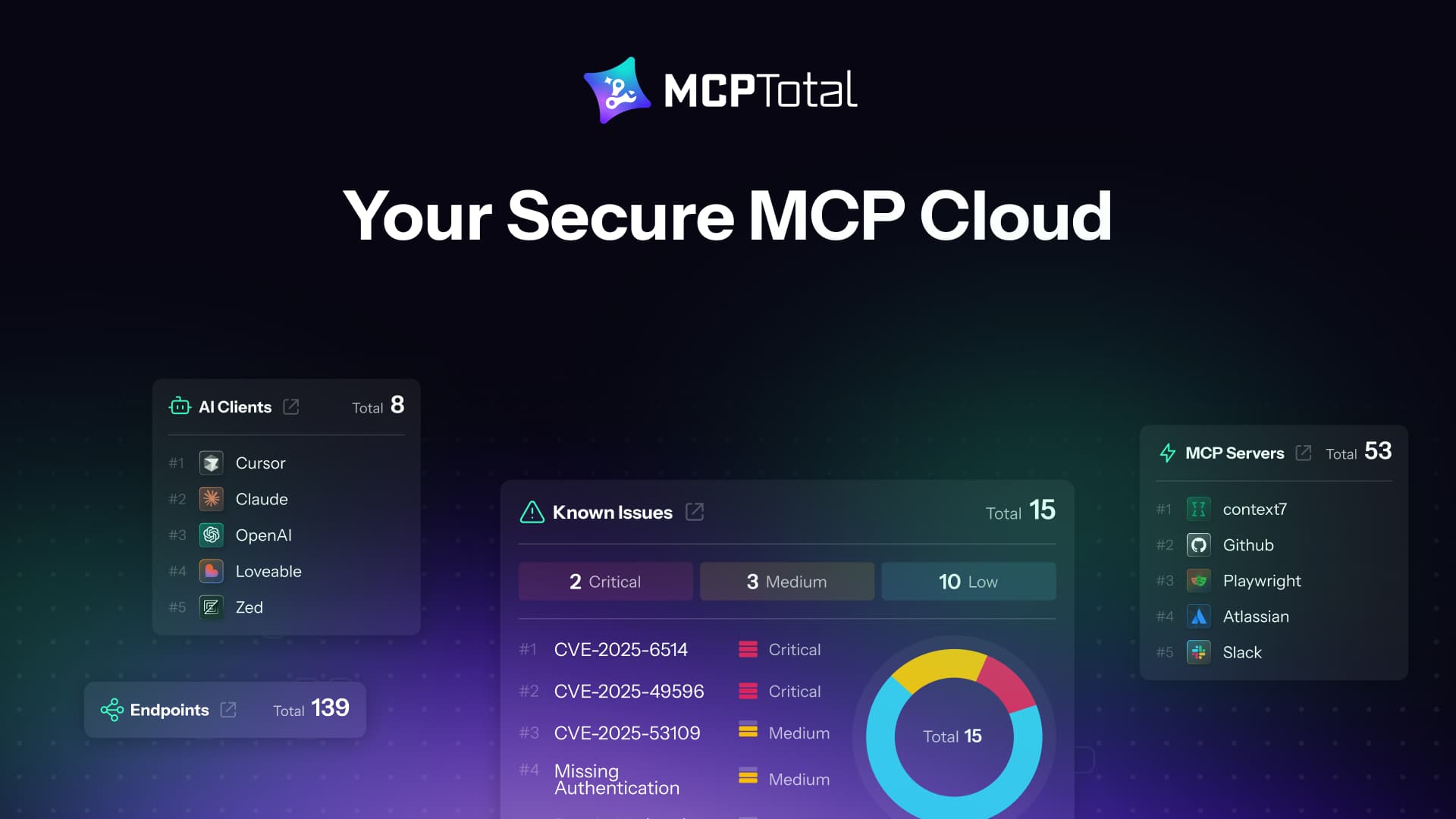
MCPTotal Launches to Power Secure Enterprise MCP Workflows
The Critical Need for Secure Model Context Protocol (MCP) Workflows
The rapid integration of Artificial Intelligence (AI) models into enterprise systems has revolutionized how businesses operate, from automating complex tasks to deriving critical insights from vast datasets. However, this transformative power comes with a significant cybersecurity caveat. The Model Context Protocol (MCP), now the de facto standard for connecting AI models with enterprise resources, external data, and third-party applications, has inadvertently opened new vectors for attack. Uncontrolled or unsecured MCP deployments introduce profound risks, including supply chain vulnerabilities and the insidious threat of prompt injection attacks. Recognizing this escalating landscape, MCPTotal has launched its comprehensive platform, aiming to secure these vital AI workflows for enterprises.
Understanding Model Context Protocol (MCP) and Its Risks
MCP serves as the crucial intermediary, enabling AI models to interact with the broader digital ecosystem. It facilitates the exchange of context, data, and instructions, allowing AI to perform complex operations within an enterprise environment. While essential for AI’s functionality, this interconnectedness makes MCP a prime target for malicious actors. The primary risks associated with unsecured MCP adoption include:
- Supply Chain Exposures: Just as software supply chains can be compromised, the integrity of AI models and their contextual data can be undermined if the components or external data sources they rely on are malicious or vulnerable.
- Prompt Injection Vulnerabilities: This increasingly prevalent attack vector manipulates the AI model’s behavior by injecting malicious instructions through carefully crafted prompts. These injections can lead to data exfiltration, unauthorized actions, or the generation of harmful content. (For a related concept, see CVE-2023-38600, for example, which addresses prompt injection in specific contexts).
- Data Exfiltration: Exploiting weaknesses in MCP configurations can allow attackers to extract sensitive enterprise data that the AI model has access to.
- Unauthorized Access and Manipulation: Compromised MCP workflows can grant attackers control over AI model outputs, potentially leading to brand damage, financial loss, or operational disruption.
- Compliance and Regulatory Challenges: Unsecured AI implementations can lead to significant non-compliance issues with data privacy regulations like GDPR and CCPA.
Introducing MCPTotal: A Secure Platform for Enterprise AI
MCPTotal addresses these critical security gaps by providing a robust and comprehensive platform specifically designed to secure enterprise MCP servers and their associated workflows. Their solution is built to tackle the challenges of securing AI interactions from end-to-end, offering businesses the confidence to fully leverage AI’s potential without compromising security or regulatory adherence.
Key Security Features of MCPTotal
While specific features were not fully detailed in the provided source, a comprehensive secure MCP platform like MCPTotal would typically offer:
- Contextual Access Control: Granular permissions based on the AI model, user, and data context, ensuring models only access what they absolutely need.
- Prompt Injection Mitigation: Advanced techniques to detect and neutralize malicious prompt injections before they can impact AI model behavior.
- Data Loss Prevention (DLP) for AI: Mechanisms to prevent sensitive information from being inadvertently or maliciously accessed or exfiltrated by AI models.
- Supply Chain Security for AI Components: Verification and integrity checks for external data sources, libraries, and pre-trained models used within MCP.
- Real-time Threat Detection and Monitoring: Continuous surveillance of MCP interactions for anomalous behavior, flagging potential security incidents immediately.
- Compliance and Audit Trails: Comprehensive logging and reporting capabilities to meet regulatory requirements and facilitate security audits.
- Secure API Gateways for AI: Protecting the interfaces through which AI models interact with internal and external systems.
Remediation Actions for Securing MCP Workflows
Even without a dedicated platform, organizations can implement several best practices to enhance the security of their MCP deployments:
- Input Validation and Sanitization: Implement stringent validation and sanitization on all inputs provided to AI models, thoroughly checking for malicious patterns typical of prompt injection.
- Least Privilege Principle: Ensure AI models and their associated MCP configurations operate with the minimum necessary permissions and access to data.
- Network Segmentation: Isolate AI model environments and MCP servers using network segmentation to limit the blast radius of any potential compromise.
- Regular Security Audits: Conduct frequent security assessments and penetration testing of AI applications and their MCP communication channels.
- Dependency Management: Scrutinize and secure all third-party libraries, datasets, and pre-trained models used by your AI initiatives.
- Monitoring and Logging: Establish robust logging and monitoring for all MCP interactions, looking for unusual activity or suspicious commands.
- Developer Training: Educate developers on secure AI development practices, focusing on guarding against common AI-specific vulnerabilities.
- Incident Response Plan for AI: Develop and regularly test an incident response plan tailored to AI-specific security incidents.
Conclusion
The launch of MCPTotal signifies a crucial advancement in securing the rapidly evolving landscape of enterprise AI. As AI models become increasingly integral to business operations, the focus must shift from mere adoption to secure integration. By comprehensively addressing the inherent risks within Model Context Protocol workflows, platforms like MCPTotal empower organizations to harness the full potential of AI without inadvertently exposing themselves to significant cyber threats. Proactive security measures are not optional; they are foundational to the future of AI-driven innovation.





